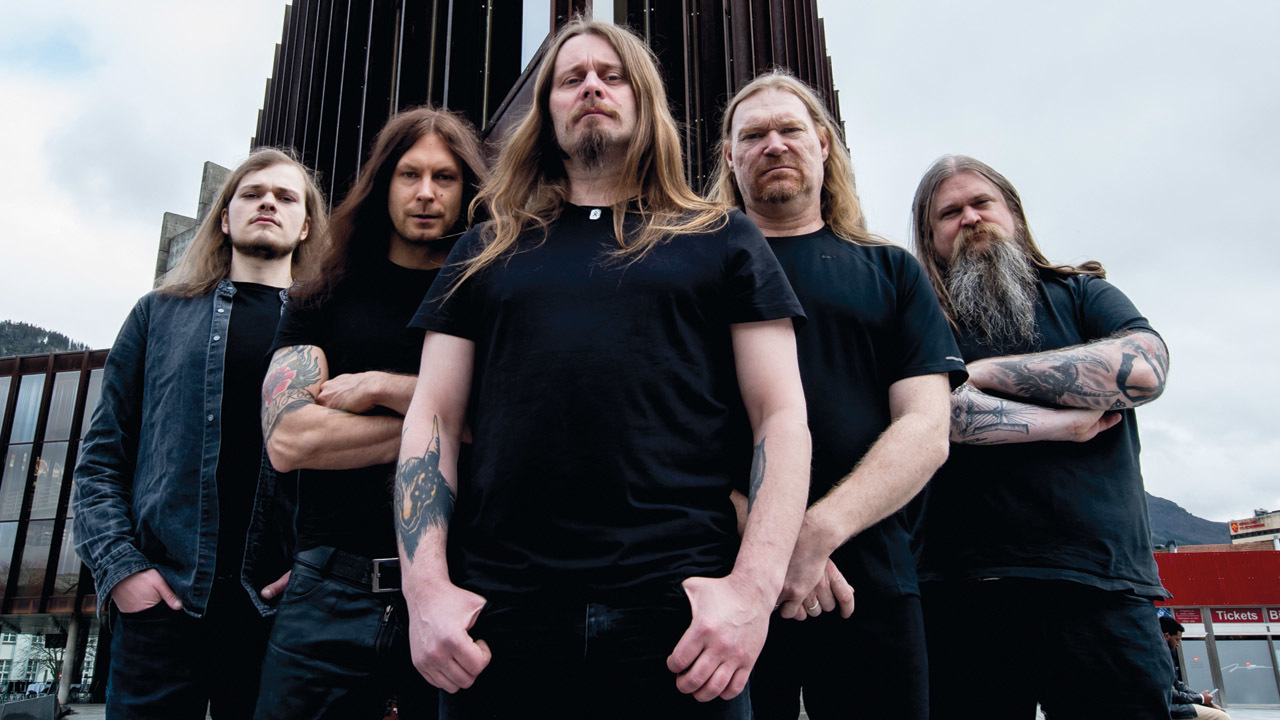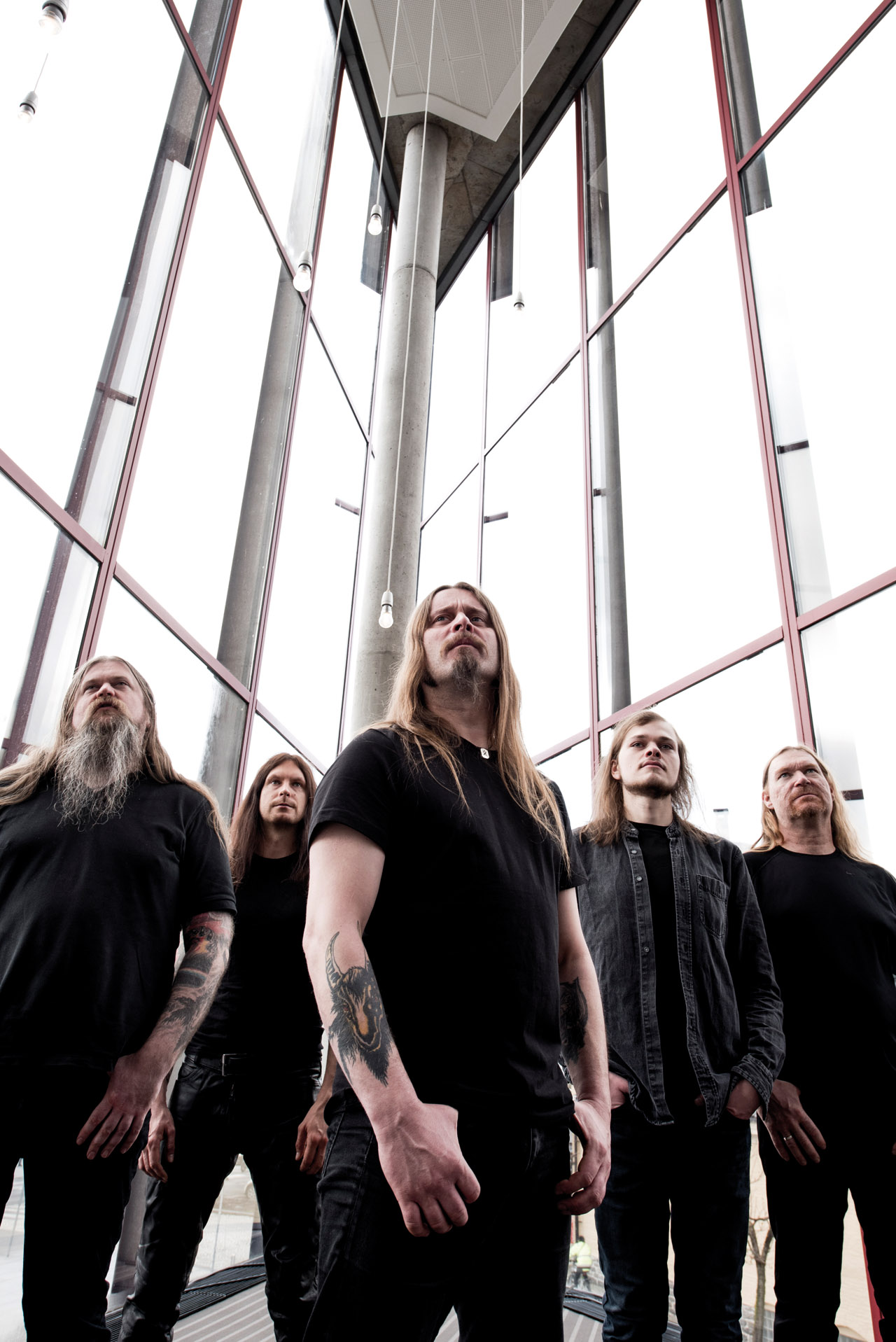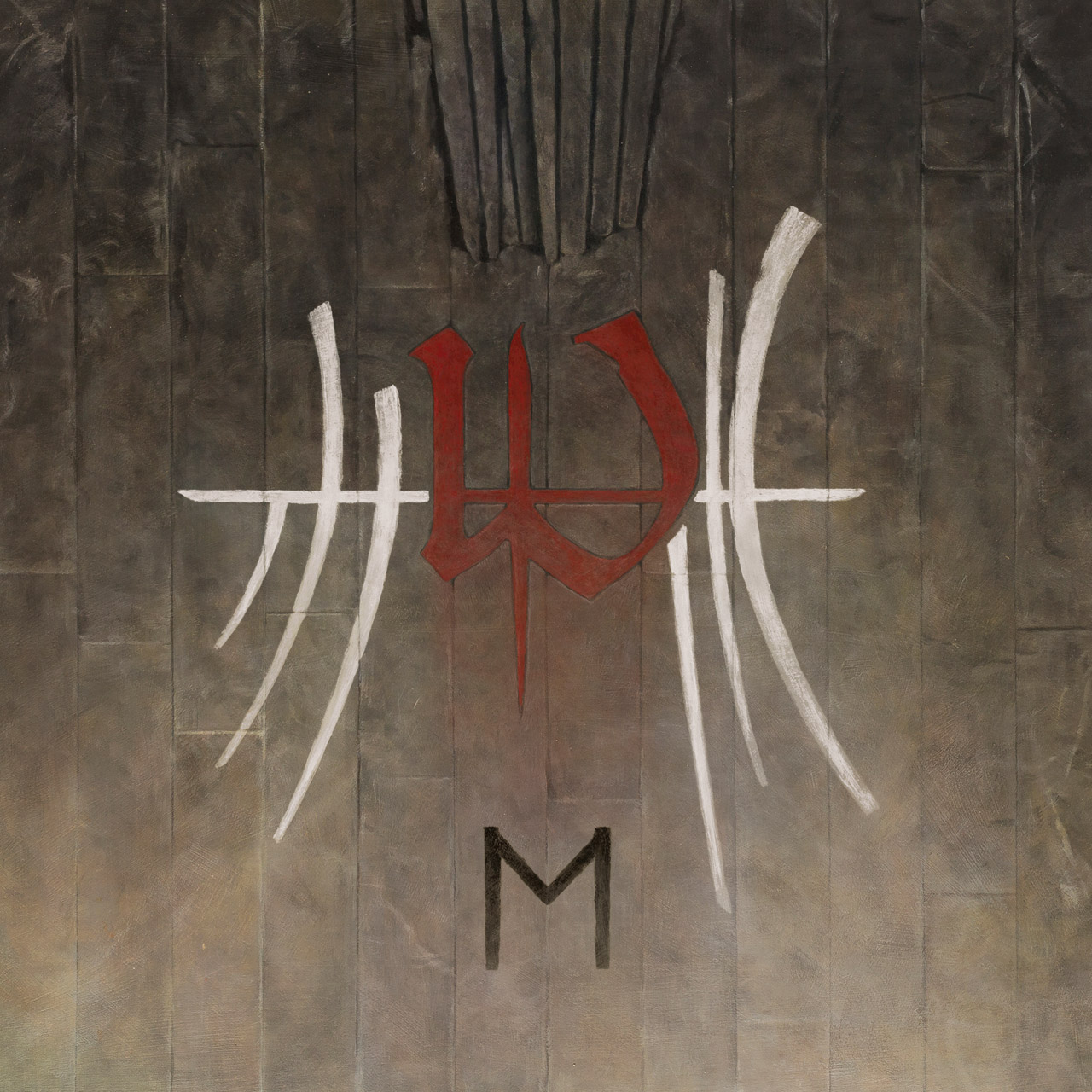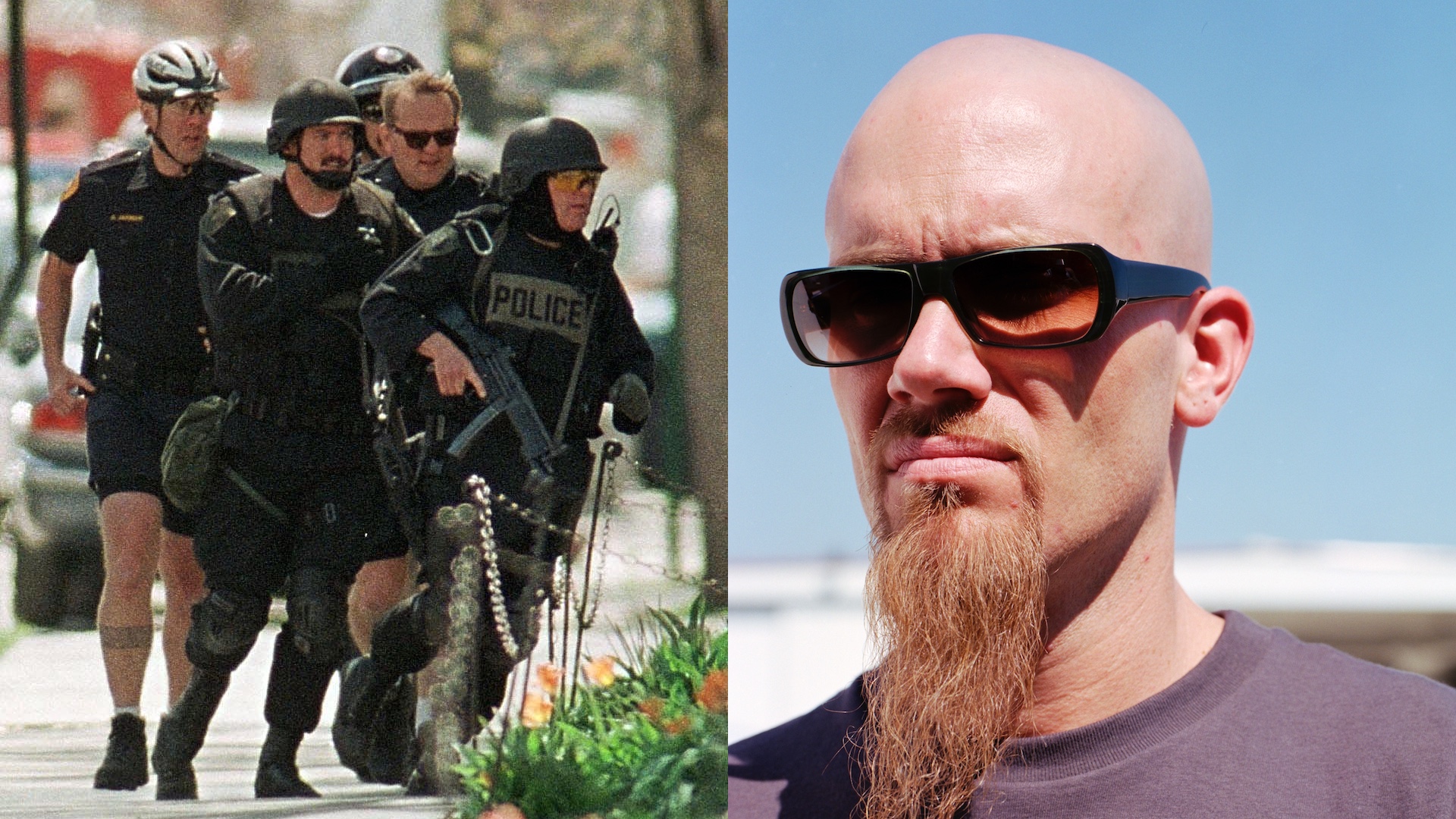Enslaved on their reinvention with new album E
Extreme Takeover: one of metal’s most fearless modern bands have reinvented themselves yet again. We find out exactly what Enslaved saw in the runes to create masterful new album E

In April 2016, Enslaved were still on a high from celebrating their 25th anniversary. there was much to be proud of – in their earlier days they had helped to define Norwegian black metal, before gradually reinventing themselves as a unique progressive entity that broadened the horizons of extreme music. Continuing this process, guitarist Ivar Bjørnson booked a studio and began work on Sacred Horse, a song that would become the centrepiece of forthcoming album E. But not everyone in the band was happy.
Keyboard player and backing vocalist Herbrand larsen suddenly announced his departure after 13 years, throwing them into crisis. “I think Herbrand was expecting a move in a rock-oriented direction, because the band had been going more melodic,” explains Ivar. “[then] he realised that Enslaved at any time could implode in total musical craziness! He wasn’t as motivated as the rest of us, which had the opposite effect – we became more enthusiastic. Around the 25th anniversary, there was a realisation for us that success would be to realise our artistic vision; if it ends up on this or that commercial level, it doesn’t really matter.”
there was no bad blood in their parting, but the strong friendship in the band – completed by lead vocalist/bassist Grutle Kjellson, guitarist Arve Isdal and drummer Cato Bekkevold – made Herbrand’s decision all the more agonising. “It was very painful,” Ivar confesses. “It’s so much fun touring; I guess he made the decision way back, but the social aspect kept him there for a long while.”
So began the hunt for a replacement, with studio time fast approaching. “Finding a guy who can tour 200 days a year, committing social and relationship suicide, playing 70s-style keyboard and organ and singing clean vocals…” Ivar sighs heavily before continuing. “to find that in three months, preferably in our hometown of Bergen, with only 350,000 people living there, seemed like a long shot. But good art depends on luck and craziness!”

They didn’t have to wait long, with Herbrand’s farewell concert in Bergen surprisingly deciding their fate. A local prog band called Seven Impale supported, and their 25-year-old keyboardist, Håkon Vinje, immediately caught Ivar and Grutle’s attention. “We talked to him after the gig and he turns out to be a huge Enslaved fan, he also sings and, wouldn’t you know it, his band are going on a break and he’s looking for something new! We were like, ‘Are you kidding?! It’s been 16 minutes and we have a new guy!’” remembers Ivar. “Herbrand did his job but was great at playing many instruments; he didn’t have that pride in being a keyboard player.”
Despite their comfortable line-up, Herbrand’s reluctance to experiment had begun to stifle the band’s creativity, Ivar working on the keys and Grutle the vocals, without much contribution from Herbrand until the closing stages of a record. It was a declining situation they were determined to change. they were looking for their own keyboard maestro.
“He’s three months younger than the band!” Ivar laughs. “the craziest thing is, he told us that when he was eight, he was watching Deep Purple on TV and exclaimed he wanted to be Jon lord when he grew up! that was all the information we needed.” Håkon fitted seamlessly into the writing process for E, his love for Enslaved giving him a good sense of what worked for the band, while his talent surprised even Ivar. they soon developed a bond, Håkon affectionately referring to Ivar as ‘Big Egg’, and Ivar calling him ‘tiny Egg’.
Sign up below to get the latest from Metal Hammer, plus exclusive special offers, direct to your inbox!
“As painful as it was killing off the thought of our eternal line-up, there was something new born, and that was us going back into the studio as a unit and working on the vocals. It was challenging to have someone come in and see our processes, that young cheekiness that only 25-year-olds who really know how to play can have,” Ivar grins. “His stuff was amazing – nothing had to be fixed.”

Enslaved’s Viking sword has been smeared with young blood; a crimson-spattered blade that has pierced the spiritual heart of the band, rejuvenating their quest. E, their 14th album, sees them inhabiting a mythic space, fuelled by the grating pace and iconic rhythmic staccato of their black metal origins while continuing their melodic evolution, enhanced greatly by Håkon’s standout performance on keyboards. tracks are significantly longer and more adventurously experimental than previous album In Times, with a theme as ever inspired by ancient Norse spiritualism, alchemically melded with Ivar’s fascination with science and philosophy.
“that first song, Sacred Horse, became a question of synchronicity – that wonderful mechanism where your subconscious focuses in on things, and you start to see them everywhere,” he says. “Some believe it’s magic, the gods, whatever.” Ivar began to notice horses wherever he looked, turning to one of the band’s pillars of strength, Norse mythology, for answers. Studying the runes, he found something to fuel his imagination: on their 14th album cycle, he was drawn to the 14th rune, ‘the Ehwaz’, which literally means horse. It exists to celebrate man’s scared relationship with the animals, but represents something deeper.
“[Taming horses] turned Bronze Age man on to his awareness of holy partnerships,” he says. “man and horse is a very basic one, but it must’ve seemed to them like a miracle – suddenly you can move at speed, outrun your enemies, chase down deer; no wonder they gave it a rune.” Ivar began to apply the concept of sacred partnerships to Enslaved, inspired by the partial fracturing and healing of their own. “Each rune represents a mystery,” he continues, “and this one about partnerships, dualities and interdependence fitted well into the Enslaved world.”
It’s quite the thematic departure for a band traditionally focused on individuality – a recurrent theme in black metal – but no man is an island, and with instability threatening Enslaved, Ivar became fascinated with exploring human codependence. “A group needs strong individuals, but they don’t work in a vacuum – even a misanthrope depends on the people he feeds on hating,” he explains. “It’s an admission that the story of the individual is important, but part of a larger narrative.”
It’s a recognition on Ivar’s behalf that he hasn’t always been the easiest to work with in Enslaved, citing his ambient solo project BardSpec, and his recent collaboration with Wardruna’s Einar Selvik on their rousing Skuggsjá album, as two confidence-building corners of “a selfreinforcing triangle”, the third being Enslaved. “We both come from bands where we have the final say, and were forced to work together – the guys in Enslaved could tell you our collaboration has softened me up a bit,” he admits.
- Enslaved's Ivar Bjørnson unveils new track from his ambient project BardSpec
- Enslaved - E album review
- Watch video for epic new Enslaved track Storm Son
This isn’t Enslaved’s first departure from traditional black metal ideology, and won’t be their last. They’re used to being outsiders, and you get the impression they thrive on gleefully challenging the expectations of fans old and new. Supporting Opeth – themselves an extreme band that crossed over into the prog sphere – on their forthcoming UK tour in November will further push Enslaved onto audiences who might be unprepared for the extremity of the assault that awaits them.
“We’ve enjoyed provoking purists in our own scene – it’ll be fun to see how people in the so-called prog scene react,” says Ivar. “Some say this isn’t prog because of Grutle’s extreme vocals – that’s approximately the most ridiculous thing you can say. That is the definition of progressive – taking something you didn’t expect and making something new. If we can stamp around in their fragile prog salad, that’d be awesome,” he enthuses.
However successful Enslaved become, their legend is secure, ‘success’ something they’re unconcerned with, accusations of selling out null and void given the elongated, labyrinthine nature of E’s six tracks. “Streaming services are openly telling record companies that artists should have four-minute songs. Enslaved with four-minute songs wouldn’t be Enslaved; I stopped looking at the watch when making these songs,” says Ivar.
So Enslaved emerge rejuvenated from turmoil, wielding one of their best albums to date, an adventure full of spinetingling moments to rouse the old gods. It’s the fruit of a refreshed creative process as intuitive in 2017 as it was in 1991, honouring their heritage but ever seeking to invade new shores, Ivar brimming with anticipation at the thought of unleashing their galloping beast on unsuspecting ears when the Opeth tour starts, regardless of the outcome. “Now we have this opportunity, a steady increase in audience, so let’s just see if it all crashes and burns,” says Ivar with abandon. “We need to make sure we’re on our toes!”
E is out October 13 via Nuclear Blast. Enslaved tour with Opeth in November.
Alone in the dark
How Enslaved’s Cato Bekkevold became the real wild man of rock…
Drummer Cato Bekkevold appears on reality survival TV show Alene (‘ Alone’), currently airing Norway. Ten contestants were cast out to survive alone in the wild north, with only basic equipment and a camera, to see how long they could last. He explains how he got on…
How much did you know about survival before the show? “I know quite a lot about nature, because I spend so much time out in it! If there’s the possibility to do some fishing, that’s what I do apart from playing drums.”
What did you have going in?
“We got one pair of boots, a couple of pairs of socks, some pants, a jacket, a warm hat and some gloves. And a rucksack to carry it in, and a light mattress. No tent, just a tarp for shelter. And a knife, an axe, a kettle, a cup and basic fishing gear – just a line and some hooks and sinkers. And a box of worms!”
What was the hardest bit?
“Eventually it became a bit boring, because there was no one else to talk to. You’ve probably seen Castaway with Tom Hanks, when he ended up alone on an island. He paints a volleyball with his own blood and calls it Wilson – the camera was like my Wilson! But I found some garbage in a lake that I made use of. They told me, ‘If you can find stuff lying around, you can make your own drumkit and film that’ – so I did!”
How long did you last?
“I can’t tell you. But there were gigs coming up, so I knew that at some point I would have to throw in the towel. I had the best beer, shower and sleep I ever had after I left! My motivation to was to prove I was able to survive outdoors, at the mercy of nature, and I’m proud to say that I did.”
